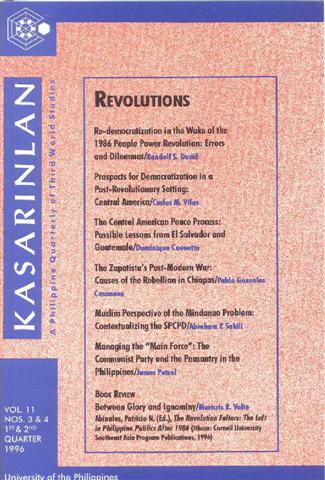Prospects for Democratization in a Post-Revolutionary Setting: Central America
Abstract
Prospects for democratization in those Central American countries that experienced revolutionary processes are discussed in the light of recurrent structural constraints—such as incipient structural differentiation, overwhelming poverty, dependence on foreign financial subsidies—and specific socio-political variations i.e. uneven modernization of traditional rule; tensions between the recent mobilization of both “old” and “new” social actors, and political institutions and actors (such as parties, unions, parliaments, government and multilateral agencies) which, in some cases, lead to current social demobilization and electoral apathy and, in others, prevent the effective uprooting of political violence; persistence of traditional authoritarian culture and its articulation as the new ingredient of the post-war political and socio-economic setting.
Section
Features
Keywords
Democratization, Central America,
By submitting a manuscript, the authors agree that the exclusive rights to reproduce and distribute the article have been given to the Third World Studies Center.



